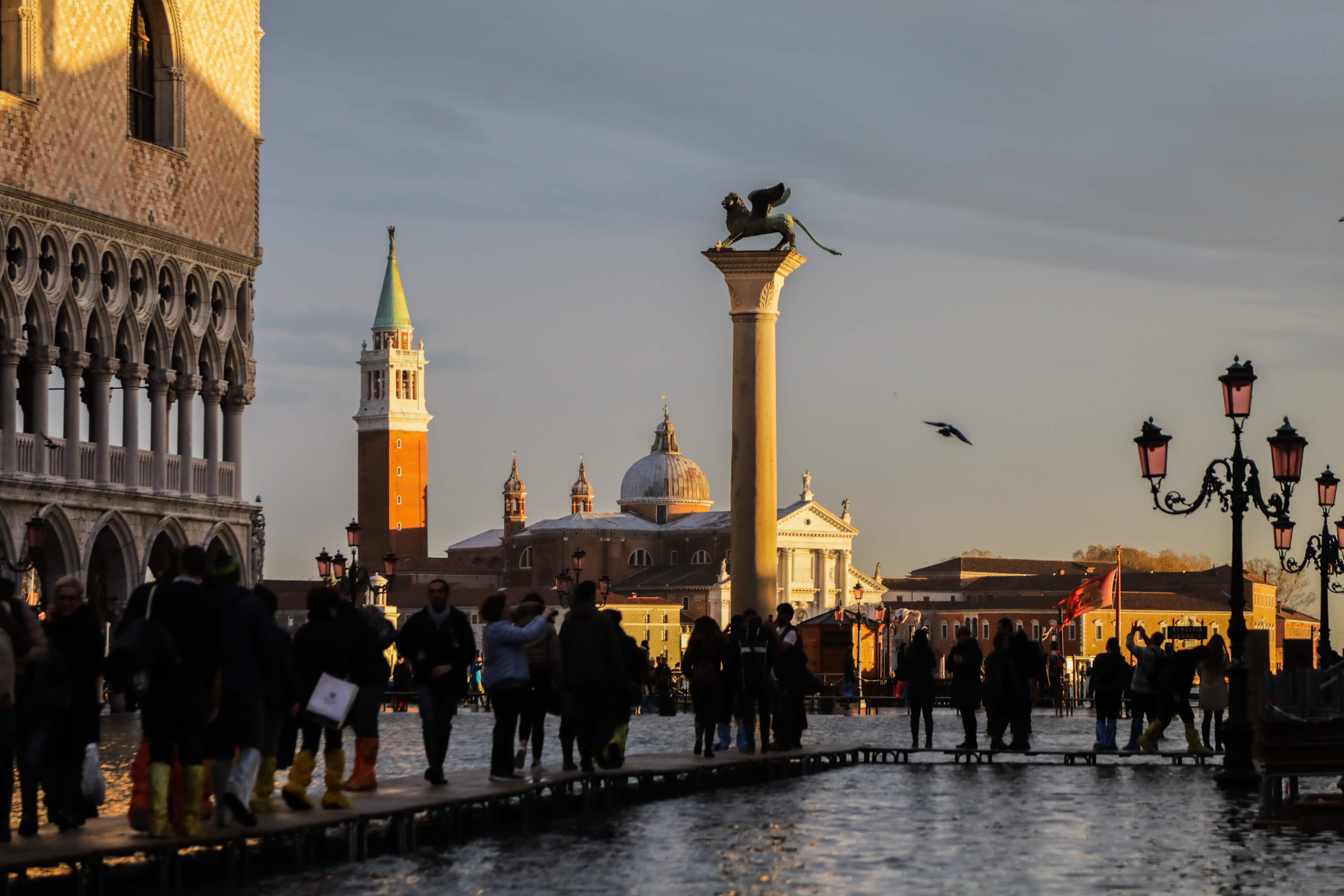Don’t let off-season flooding deter you from visiting one of Italy’s most beautiful cities
Looking at images of Venice’s water-filled streets from last November’s flood, it’s natural to wonder about visiting: will you have to bring gum boots or wear rubber fishing pants over all your outfits on your way out to dinner?
We spoke to local Flytographer Marta to get her insight on what tourists need to know before they book their trip to Venice, and she had a ton of useful information to help us understand what’s going on in Venice now and how you can best plan your next visit.
Book your vacation shoot in Venice now
First of all, flooding isn’t a new normal in Venice, it’s an annual event. Just like how Mexico or parts of Asia have a rainy season, Venice has a flooding season, where strong humid winds and high tides combine to flood parts of the city in the off-season, during November and December.

Off-season and shoulder-season travel has become so popular globally, along with Instagram, and so more tourists are visiting Venice when its streets are flooded and publicizing the results.

The city has quite a few measures in place to manage the flooding, like a siren system that alerts locals of exceptional high tides and there are a series of pathways built high enough to stay out of reach of the tides that surge in for about three to four hours.


According to Venezia Unica, most of the city, about 97 percent, is built at 100 cm above the middle sea level, which means that the amount of water that can come into the streets is always well below the maximum tide. These very intense and exceptional tides that can happen during the flood season in November and December could be 140 cm, but would correspond to about 60 cm of water in the lowest parts of the city, which covers about 56 percent of the historic centre.

St. Mark’s Square is the most popular tourist spot in Venice, and it just so happens to be one of the lowest places too, so it’s especially subject to flooding and the star of many a viral photo in the winter.

“I have lived in Venice for more than 20 years. I attended university here and fell in love with this wonderful city, so I chose to stay and build a future. No place in the world fills my heart more when I walk early in the morning or after I return from a trip, boating across the lagoon to get home. Venice is a city rich in history, traditions and culture. It’s a magical city in which incredible stories and destinies have intertwined, and where still today many lovers dream of being able to marry and fall in love. Venice is beauty, enchantment, a dream.
Venice is also a city of water, and all its inhabitants know and live with this element. The exceptional event of November 12, 2019 was a truly out-of-the-ordinary event. The Venetians have always lived with the high tide, but this level had only been reached before in 1966 (when the water reached 194 cm). I have seen more or less difficult tides in the years, but nothing like that of last November. In my home, on the ground floor, the water had never before entered. I found myself having to throw away a lot of furniture, my bookcases, and sofas. It was really a big tragedy for the city and for the shops, which have suffered enormous damage and lost an infinite amount of things.
However, in the week following the flood, we also had evidence of how much love and resistance we all have in getting the city back on its feet, from the smallest of details to the largest of the monuments. People, despite the fatigue and the losses, did not hesitate for a moment to help each other. Groups of volunteers and young university students worked for days and nights bringing help to other citizens in difficulty … even in the most disheartening moments, nobody let go for a moment.
Everyone was ready to get to work immediately to get us back on our feet. We felt the warmth of the people who love this city from all over the world and this has helped us not to lose heart. Venice lives, and will continue to live, as long as there are people who love it and who are willing to fight for it. Long live Venice!”
—Marta, Flytographer in Venice
So when can you book your next trip to Venice? The answer is, any time, but if you travel in November and December, you should do as the locals do: pack your gum boots or waterproof shoes for any high tides, and know that a few sites might be off-limits for part of the day until the tide goes out.



















